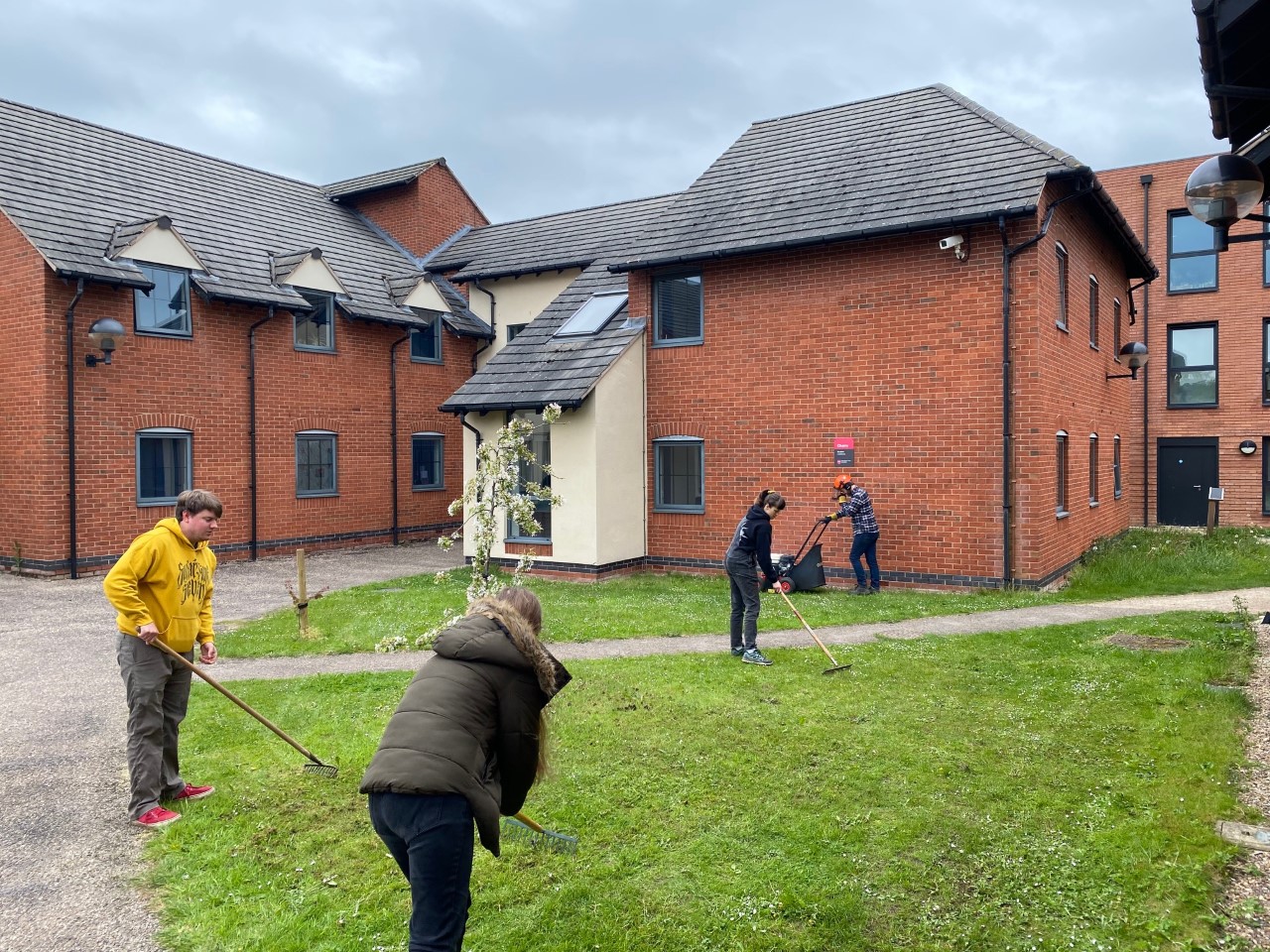Conservation Society Lead Wildflower Expansion at Brackenhurst
The Conservation Society (ConSoc) have sown wildflowers across the outside areas surrounding accommodation blocks at Brackenhurst as part of their efforts to create habitats and support species on the campus.
By Lucy Yates | Published on 10 May 2022
Categories: Environment and sustainability; School of Animal, Rural and Environmental Sciences;

In the week of 25th-29th April, the Conservation Society (ConSoc) sowed wildflowers across the outside areas surrounding accommodation blocks at Brackenhurst as part of their efforts to create habitats and support species on the campus. Work took place across the Wednesday and Thursday of the week and still continues. The ground was first scarified by ConSoc members with loose plant matter then raked away, in order to increase bare ground to sow seeds into. A vast variety of clay soil, hedgerow and woodland mix with species such as Cowslip, Wild Foxgloves, Wild Primrose and notably Yellow Rattle which parasitizes grass species from growing were then sown into the soil.
Wildflower Meadows are a brilliant way to increase diversity, doing best on nutrient poor ground. They can host an enormous amount of plant species within a relatively small area. With these plants come their associative organisms such as bees, hoverflies, moths and butterflies. These pollinators are incredibly valuable for food chain processes being on par with plants as the basis for much of life. Wildflower meadows result in a unique environment not just for social enjoyment but also practical teaching spaces to enhance our students’ learning experience as well as exciting research opportunities for both staff and students.
Every five years there will be an updated management plan drawn up by the Conservation Society in association with School of Animal, Rural and Environmental Sciences (ARES) staff coordinated through the ARES Land Users Group. It is hoped too that, with support from teams across the university, ConSoc may be able to measure the carbon sequestration contributions of wildflower and subsequent tree planting in order to help NTU achieve it’s Net Zero Carbon 2040 Target.
Email the Conservation Society to find out more about their projects or Email the Sustainability Team about further wildlife and net zero projects at NTU